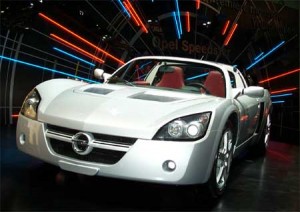
The sale of Opel has been delayed, but barring a turnaround in the U.S., GM may yet have to sell other parts of its global empire.
The new General Motors Corp. that has emerged from bankruptcy is fighting to keep its overseas empire intact.
Under pressure to sell off a controlling stake in its German-based Opel subsidiary, GM may yet have to auction off other key global ventures.
GM now doesn’t expect to make a final choice between two competing bids for Opel from Magna and the Belgian-based private-equity firm of RHJI until after the re-organized General Motors board of directors meets early next month. A third bid from Beijing Automotive Holding Inc. has been rejected, GM officials confirmed.
The rejection of the Beijing Automotive bid prompted speculation that GM had turned the Chinese maker down because it didn’t want to contribute to the rise of a rival in the critical Asian automotive market. GM’s various China ventures have been very successful but the automaker’s Chinese partners, which own half the business have become increasingly assertive.
While the Chinese auto market is booming, Chinese auto companies are being encouraged, through new government policy, to expand export operations, which could ultimately put GM in direct competition with its Chinese partners in Europe and even North America – but more importantly, in places such as Russia, the Middle East and South America.
In addition, the bankruptcy, while it didn’t involve GM’s profitable Chinese operations, has undermined GM’s reputation around the world.
Opel, the key to GM Europe, while not technically bankrupt, told the Gerrman government last spring that it was rapidly running out of cash and its parent company back in Detroit couldn’t offer any help. Given that 2009 is an election year, Opel’s plight touched off alarm bells in Germany — as well as offers of government aid.
Magna, the Canadian-European auto parts maker, stepped forward, offering to act as a white knight and rescue Opel, while continuing a close cooperative relationship with GM. Magna’s promise to save jobs carries enormous weight with German politicians.
However, the bid from Magna, never the most transparent company, strategically speaking, also raised alarm bells at GM headquarters in Detroit. Despite the financial crisis GM’s executives were concerned that a Magna-Opel venture could set its own course for the future, especially with the supplier backed by the Russian lender, Sberbank. GM has basically pulled Opel out of China in favor of Chevrolet but an independent Opel could reverse course.
The Sberbank-backed Magna-Opel venture also would dominate GM efforts to break into the Russian market. Thus, GM is insisting on being given the right to repurchase Opel assets once demand for cars and trucks around the world begins to revive.
To leverage its position, GM has invited a rival Opel bid by RHJ International, of Brussels, Belgium, which had just recently completed the purchase of assets of bankrupt Metaldyne Corp. As a private-equity firm, RHJ would certainly not hesitate to sell Opel back to GM if the prices was right.
The German government, however, clearly favors Magna because it promises to protect or save more jobs. (And there are “familial” ties, as it were, to Magna’s Austrian-born founder, Frank Stronach.) It also creates new links between German and Russia, which is generally considered a good thing in Germany, and it doesn’t involve private equity, which has a dismal reputation in Germany.
Since the German government is putting up cash to help save Opel, GM may find it might not have all that much leverage as the negotiations reach their final stage.
Overseas sales accounted for 72 percent of GM’s global sales in the second quarter and are expected to account as much as 65 percent of GM’s sales going forward, once the sale of Opel is accounted for, according to Michael DiGiovanni, GM’s general director of market analysis.
In fact, the discussion involving Opel suggest GM’s role as a global automaker are under intense strain right now and could be for some time. With the U.S. Treasury in position as the automaker’s largest shareholder, post-bankruptcy, it could well be that GM’s prized assets in Europe, South America and China might yet wind up on the auction block if GM’s turnaround in the U.S. fails to take hold.
